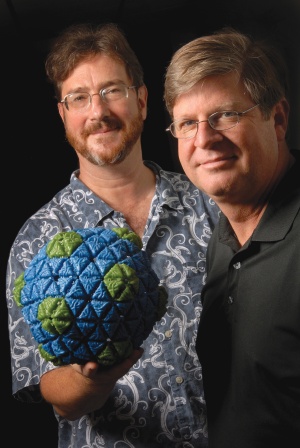Dec 2 2008
NanoVector, Inc. announced today that it has licensed the plant virus nanoparticle drug delivery system developed by Professors" Stefan Franzen and Steven Lommel from North Carolina State University. "This is breakaway technology that will finally provide the highly sought after selective targeting of tumors and intracellular delivery of anti-cancer agents for improved efficacy and fewer unpleasant side effects," said Albert Bender, Ph.D., NanoVector CEO. "The plant virus nanoparticle has evolved over millions of years to have several inherent characteristics essential for a successful nanoparticle delivery system and superior to any chemistry based nanoparticle designed and engineered by humans.? continued Dr. Bender.

The most important property of the virus is its built-in sensor-actuator system. When the virus carrying the therapeutic agent enters a cell, it senses a change in chemical environment and automatically unloads its cargo. Therefore the highly toxic therapeutic agent is released only in a cell, never in the blood stream as with manmade particles that depend upon capsule degradation or require an external trigger to open the particles for the release of their content. The benefit derived from this feature of the NanoVector nanoparticle is the minimization of the toxic side effects associated with free anti-cancer drugs in the blood stream that attack healthy cells.
A second feature of the plant virus is that its automatic release of cargo is not instantaneous once the virus enters a cell. This allows time for the licensed two-stage targeting in which nuclear importins attached to the nanoparticle guide it into the cell nucleus where it unloads its therapeutic agent, thereby maximizing efficacy and evading the cancer cell defenses. Delivery to the nucleus overcomes multi-drug resistance that occurs with current drug therapies.
Robustly protecting its cargo in very harsh environments is another property of the NanoVector plant virus nanoparticle. Unlike other viruses, the NanoVector plant virus is non-toxic to humans and, without specific cell targeting, will not accumulate in any body organs or otherwise healthy tissue. This makes it the perfect vehicle for targeted intracellular therapeutics.